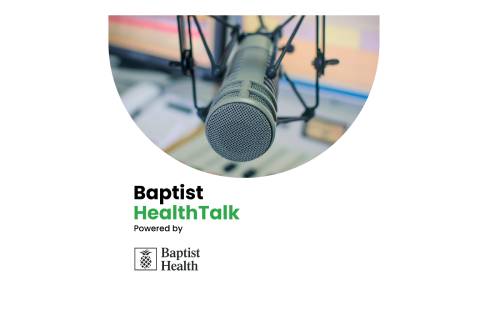
Science
Roundup: Colorectal Cancer Now A Leading Cause of Death in Adults Under 50; Link Between Heart Disease and Alcohol; and More News
5 min. read
Written By: John Fernandez
Published: January 19, 2024
Written By: John Fernandez
Published: January 19, 2024
Colorectal Cancer Now No. 1 Cause of Cancer Death in Men Under 50, No. 2 in Women Under 50
Rising rates of colorectal cancer has “rapidly shifted mortality patterns” in adults under 50 years of age, according to the American Cancer Society’s yearly update released this week.
Colorectal cancer has moved up from fourth-leading cause of cancer death in both younger men and women two decades ago to first among men and second among women under 50, states the ACS report: Cancer Statistics, 2024.

Domenech Asbun, M.D., a hepatobiliary and pancreatic surgeon at Baptist Health Miami Cancer Institute.
"The data is a bit surprising because we know more about the risk factors for colorectal cancer, and this report raises the question of how well everyone understands the top risk factors," explains Domenech Asbun, M.D., a hepatobiliary and pancreatic surgeon at Baptist Health Miami Cancer Institute. "Tobacco use, too much alcohol and obesity are some of the factors that we have identified that cause cancer."
The ACS also reported that Incidence rates were found to be increasing for some of the more common cancers, including breast, pancreatic, uterine, renal, melanoma and HPV-related oral cancers.
“The continuous sharp increase in colorectal cancer in younger Americans is alarming,” said Ahmedin Jemal, M.D., senior vice president, surveillance and health equity science at the American Cancer Society and senior author of the study, in a statement. “We need to halt and reverse this trend by increasing uptake of screening, including awareness of non-invasive stool tests with follow-up care, in people 45-49 years.”
Up to one-third of people diagnosed with colorectal cancer before 50 have a family history or genetic predisposition, and should begin screening before age 45 years, he added. U.S. guidelines recommend that people 45 to 75 years of age be screened for colorectal cancer to reduce their risk of dying from this disease. Those who are at above-average risk should consult a physician and be screened at an even earlier age.
“The 2024 ACS cancer report underscores the importance of cancer prevention, and illuminates priority areas to address cancers whose incidence and/or mortality rates are inexplicably rising,” said Karen E. Knudsen, M.D., chief executive officer at the American Cancer Society, in a statement.
The three primary factors that makes a person at higher risk of developing colorectal cancer are: A strong family history of colorectal cancer or certain types of polyps; A personal history of colorectal cancer or certain types of polyps; A personal history of inflammatory bowel disease (ulcerative colitis or Crohn’s disease).
U.S. Heart Disease Deaths Linked to Substance Use – Mainly Alcohol -- Rose Annually During 1999-2019
Heart disease deaths involving substance use -- led by alcohol consumption -- increased an average of 4 percent per year from 1999 to 2019, despite a drop in overall cardiovascular disease deaths over the two decades, according to new research published in the peer-reviewed Journal of the American Heart Association.
The overall rate of substance use-related cardiovascular deaths increased from 9.9 per 100,000 population in 1999 to 21.4 per 100,000 population in 2019, the American Heart Association (AHA) states in a news release. That's about an average annual increase of 4 percent. The highest rate was noted among adults ages 25-39 (5.3 percent), followed by adults ages 55-69 (4.9 percent).
Researchers found that 65 percent of cardiovascular disease deaths were related to alcohol, followed by opioids (13.7 percent), cocaine (9.8 percent), stimulants (6.5 percent), sedatives (4.1 percent) and cannabis (0.5 percent).
“The study results were generally consistent with what we see in our clinic while caring for patients with cardiovascular disease,” said the study’s senior author, Dmitry Abramov, M.D., a cardiologist and associate professor of medicine at Loma Linda University Health in Loma Linda, California, in a statement.
The researchers based their findings on publicly available data from the U.S. Centers for Disease Control and Prevention’s "Wide-Ranging Online Data for Epidemiologic Research" (WONDER) database. They focused on death trends related to substance use from 1999 and 2019. The WONDER database aggregates death certificate data across the U.S. from the National Vital Statistics System.
“We would like to see additional public health efforts to support comprehensive evaluation and management of substance use in the U.S. that includes clinician and patient education, as well as attention to socioeconomic factors that contribute to substance use,” added Dr. Abramov in a statement.
The AHA stated that increases in substance use-related average annual changes were highest among the following subgroups: Women (4.8 percent); American Indian or Alaskan individuals (5.4 percent); younger adults, ages 25-59 (5.3 percent); people living in rural areas (5 percent); people who used cannabis (12.7 percent) and psychostimulants (16.8 percent).
Nearly 1 in 10 Teens Used Potentially Harmful, Non-Prescription Weight-Loss Products
Nearly 1 in 10 adolescents worldwide, primarily girls, have used non-prescription, weight-loss products, according to new research published in JAMA Network Open. The use of such products at a young age can present both immediate and longer-term health risks, experts warn.
Diet pills, laxatives, and diuretics were the most commonly used non-prescription products, said researchers, who analyzed 90 previous studies. They analyzed data globally, but the use of these products was most common in North America.
"These findings suggest that, given the ineffectiveness of these products for weight loss coupled with their harmful long-term health consequences, interventions are required to reduce use of weight-loss products in this group," the study concluded.
Diet pills were the most commonly used products, by about 6 percent of adolescents in their lifetime, followed by about 4 percent who used laxatives and 2 percent who used diuretics, the study found. "This is concerning because of the mental and physical health risks associated with the use of these medical products that are not indicated for weight loss ..." according to the study.
The prevalence of nonprescription use of weight-loss products was significantly higher in girls than boys, the researchers state.
"This is a public health concern because ... use of weight-loss products has been found with girls who have a low self-esteem, parental influence to lose weight or parental dissatisfaction with weight, self-body dissatisfaction, peer groups who value thinness, and media or social media influences promoting unrealistic beauty standards," the study's authors state.
Researchers conducted a review of 90 studies that included 600,000 participants, with the average age between 12 and18. A majority of the studies were based in North America, but research from Asia, Europe, and other regions was also included.Healthcare that Cares
Related Stories
View All Articles
Understanding Why Colorectal Cancer Rates are Surging in Adults Under 50
March 20, 2024
4 min. read

Roundup: 4 Symptoms Linked to Early-Onset Colorectal Cancer; Cognitive Impairment After Strokes is Common But Underdiagnosed; and More
May 12, 2023
5 min. read
